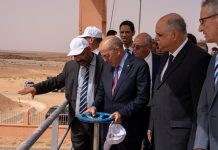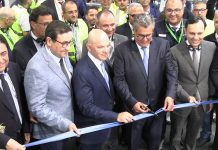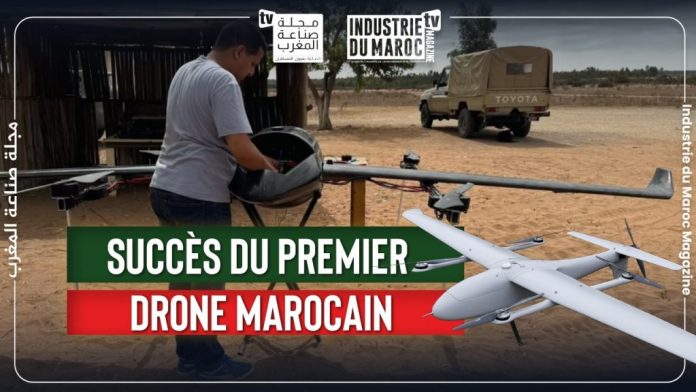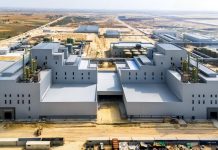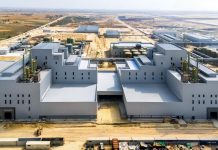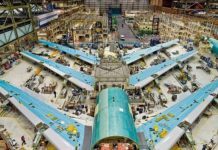After the resounding success of the first test of the Atlas drone, Sofian Ammagui, a Moroccan engineer and innovator, reveals the stakes of this Made in Morocco project, driven by the company AeroDrive, and of this technology dedicated to security surveillance.
Morocco, a country in technological emergence, marks a new milestone in the security industry with AeroDrive. This Moroccan company, specialized in developing surveillance systems via drones, combines advanced technology and artificial intelligence to offer “Made in Morocco” solutions for both private sectors and governmental institutions. In an exclusive interview with Industrie du Maroc, Soufiane Ammagui, a young engineer and graduate of Mohammed VI Polytechnic University (UM6P), shared the behind-the-scenes of this technological revolution.
According to Ammagui, AeroDrive’s project primarily aims to create intelligent and integrated surveillance systems capable of meeting security needs for large industrial structures as well as state institutions.
Drones to Revolutionize Security Surveillance
AeroDrive was born from one ambition: to optimize perimeter surveillance while reducing costs. As Ammagui explains, one of the main objectives is to provide solutions tailored to large private companies, where drones are used to monitor vast perimeters, detect intrusions, and strengthen the security of critical infrastructure. Government institutions can also benefit from this technology. « Our drones can conduct regular patrols around large facilities, such as industrial zones, to detect any intrusion in real time, » Ammagui notes.
See also|Development of Moroccan Drones: Aerodrive Signs a Financing Agreement
Data Fusion and Artificial Intelligence: The Key to Success
AeroDrive’s core innovation lies in sensor data fusion technology. This approach allows for the combination of multiple sensor types for optimal detection of movements and objects in monitored areas. « Our system uses artificial intelligence to analyze data collected by sensors, whether thermal images, RGB videos, or other sensor types, enabling very precise intrusion detection even in challenging weather conditions, » he explains.
« Manually monitoring a 1,000-hectare perimeter would be extremely costly and unreliable. In contrast, with a single drone capable of patrolling every 20 to 30 minutes, we can ensure much more effective security at a lower cost. In the event of an intrusion, a ground team is directly alerted to intervene at the exact point of breach, » details the Moroccan engineer.
Strategic Support During the Health Crisis
AeroDrive’s drones also proved effective during the COVID-19 crisis. Soufiane Ammagui describes how the company worked with the Ministry of the Interior to monitor areas where gatherings were prohibited, notably in the Marrakech and Rehamna regions. « Thanks to our drones, ground patrols were able to significantly expand their coverage, increasing it up to ten times the original area, » Ammagui emphasizes.
Towards “Made in Morocco” Industrial Production
One of the most ambitious aspects of the AeroDrive project is establishing a production unit in Morocco. This factory, which will produce up to 1,000 drone systems per year, represents a new step in the country’s technological self-sufficiency. « Our goal is to meet national security needs initially, then expand to regional and international markets, » states Ammagui.
This Moroccan production of drones is a major step forward for the local industry, positioning Morocco as a key player in technological innovation in Africa and the Middle East and strengthening its role as a regional leader in advanced security solutions.
Challenges and Future Perspectives
Despite these impressive advancements, challenges remain, especially with difficult weather conditions. « Our drones can operate in winds up to 80 km/h, but that remains an operational limit, » Ammagui acknowledges. Autonomy is also a crucial issue, particularly for fully electric drones. « That’s why we’re also developing models with thermal engines, which can offer up to 10 hours of autonomy, » he adds.
Air safety is another major concern for the future. AeroDrive is working on solutions that enable drones to detect and avoid aircraft using technology similar to the transponder used in civil aviation. This will ensure safer coexistence between drones and airplanes in the airspace.




